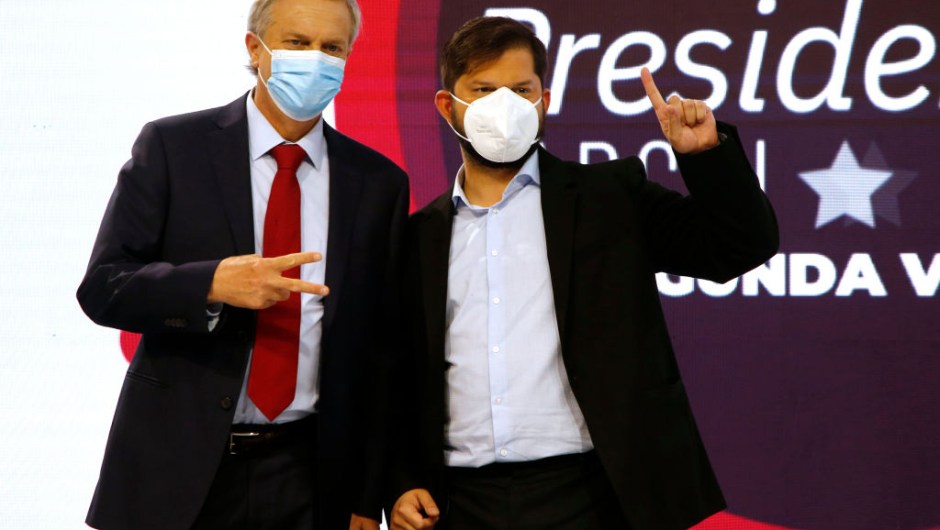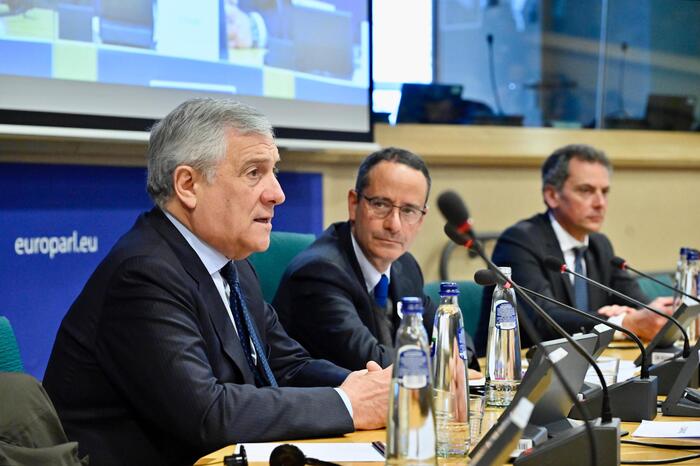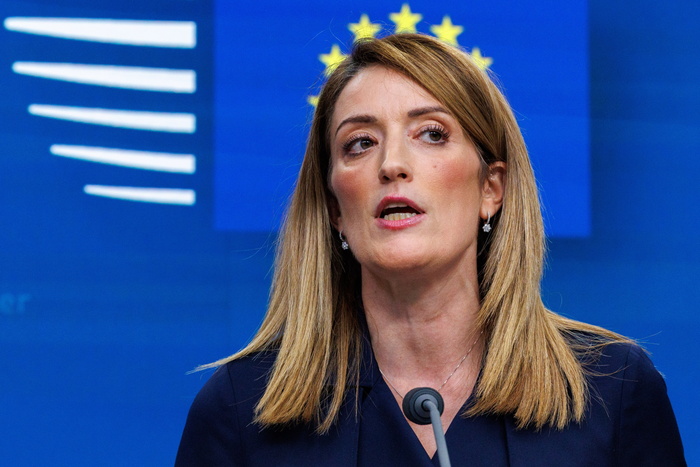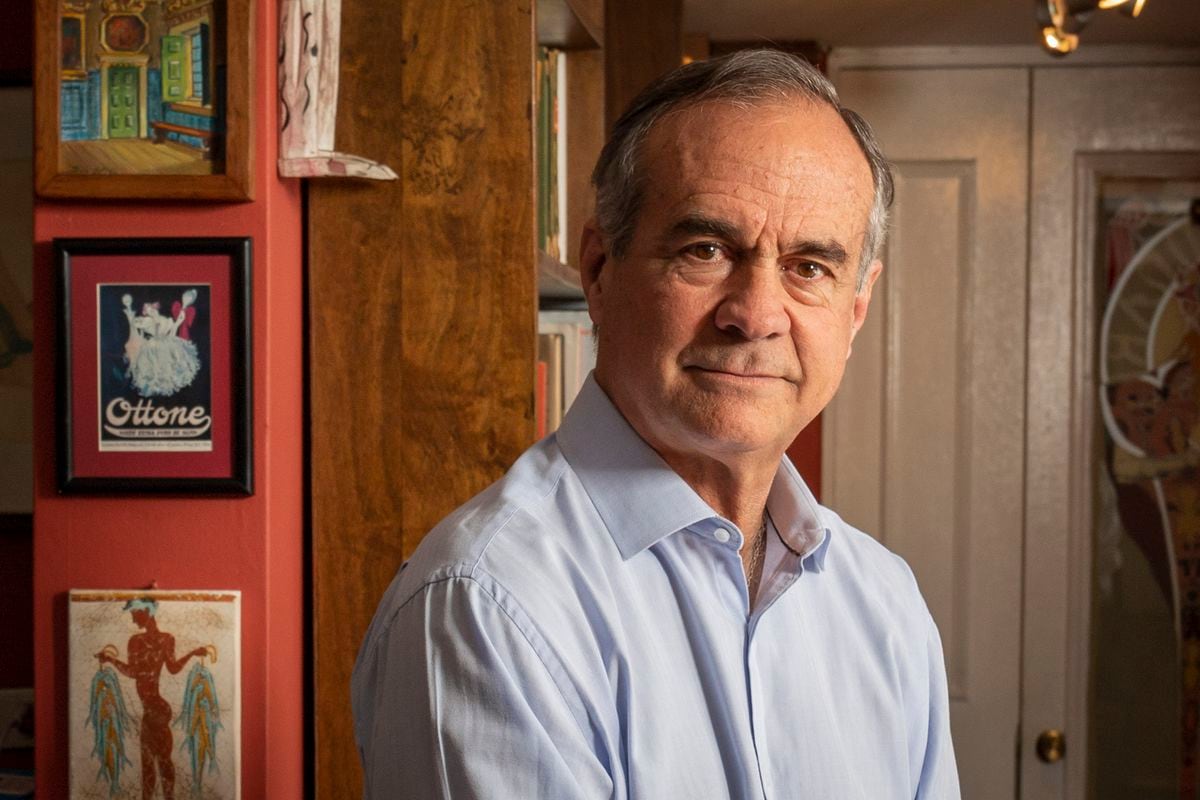(Marcelo Hernandez / Getty Images)
Editor's Note:
Erika Guevara Rosas is a human rights attorney and Americas Director for Amnesty International, where she directs all of the organization's human rights operations and work on the continent.
The opinions expressed in this article correspond exclusively to its author.
You can find more opinion pieces at CNNe.com/opinion.
(CNN Spanish) -
In October 2019 the world set its eyes on Chile, where thousands of people took to the streets demanding accountability from their government. What began as a demonstration against the increase in public transport fares, unleashed one of the most significant protest movements in the history of Chile and the entire region. Thousands of protesters demanded paradigmatic changes where human rights were at the center. The state response was atrocious; the government of the current president Sebastián Piñera deployed the security forces, which violently tried to silence the voices of demand of the Chilean people. The government acknowledged that the protests were mostly peaceful, although incidents of third-party violence were reported.President Piñera himself acknowledged that there were abuses and said that "there will be no impunity neither with those who carried out acts of unusual violence, nor with those who committed abuses or abuses," although until now justice is pending.
Despite the context of state violence, in the world we saw with amazement and admiration how these protests, led by young people and other social sectors that represent historically marginalized population groups - such as indigenous peoples, women and feminist groups, the elderly and those who live in poverty, among others– showed us that mass mobilization and the claim of rights work as tools of change, achieving the beginning of a constituent process that will change the course of the country.
Gabriel Boric: In Chile there is a lot of awareness about injustices that cannot continue
The legacy of inequality sparked protests. That is why the slogan "Chile woke up", which attracted attention in those months of the social outbreak, was the confirmation of the commitment assumed by those who, together with human rights defenders, continue to demand justice, from the streets and other spaces, dignity and equality for all people in Chile.
Today, before the second round of the presidential election, which will take place on December 19, the path of change is at stake.
You cannot give up the land earned with so much effort and so much sacrifice for thousands of people in the country.
Chile must continue with its process of change, which must serve as an example for our hurt region that, today more than ever, requires inspiration from what is possible, both on paper and in people's lives.
Those in Chile who participate in these elections, those who have the power to elect the next person who will occupy the presidency, the path traveled must be their engine of aspiration.
advertising
The next president of Chile has an inescapable duty to put all social demands at the center of his political platform and actions and urgently address pending human rights debts, including justice and the profound reform of the Carabineros.
Sebastián Piñera promulgates the law that enables equal marriage in Chile
The defense of human rights should not be optional, but unfortunately in our region we have several leaders who have shown us that we cannot take it for granted.
Very recently, we saw him in the elections in Nicaragua, where despite the serious human rights violations committed by the Government of Daniel Ortega, he emerged victorious in a process whose objective was to allow him to continue to perpetuate himself in power.
In this sense, whoever is elected president in Chile will have a historic opportunity to protect and expand rights through the aforementioned constituent process. The new Constitution must reflect the realities of this and the next century, which is why a Government at the height of the historical moment is required.
What people have demanded on the streets of Chile are basic rights such as, for example, decent pensions, quality education, sexual and reproductive health, an end to gender violence, a healthy environment, and police officers to protect women. people and not the political or economic interests of a few.
Chilean citizens have the opportunity to support these ambitions through their vote.
In the same way that a large majority voted "Approve" to start the constituent process, on December 19 Chile can reiterate its fight for a future with dignity, justice and equality that infects all of Latin America.
José Antonio Kast: I live in peace, so when someone insults me I block them


/cloudfront-eu-central-1.images.arcpublishing.com/prisa/DAXPXX7XEC2R2VNNOX5XEX4T2U.jpg)


/cloudfront-eu-central-1.images.arcpublishing.com/prisa/NZ3KWMFSD5GELFE3GLHUROE4FE.jpg)



